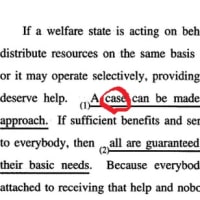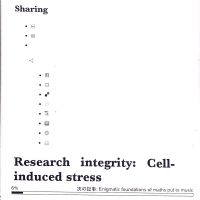以前、アメリカのNY市における幼稚園・保育園の入試競争ドキュメントについて紹介した。2010年7月27日付のニューヨークタイムズの記事は、その競争の意義を裏付けるものであり、信憑性はともかくとして大変面白いものだった。
「(The Case for $320,000 Kindergarten Teachers )良い幼稚園の先生には32万ドル」というタイトルのものである。幼稚園時代に良い教師が教えてくれたとか、早期教育のプログラムがあったというのは、期待すべき程ここがないと一般に経済学者の間では信じられてきた。短期的には成果があるように見えても、中学高校になると大して違いはなくなってしまうのだ、つまりテストの点数ではほとんど変わらなくなってしまうというのが通説であった。つまり、 fade-out 説である。
ところが、 Mr.Chetty らの最近の研究によると、幼稚園時代に善い教師に教えてもらった子供たちは、大人になると再度違いが生まれてくるというのである。大学進学率、離婚率、収入等の側面において大きく異なり、例えば5歳の時に良い教師についていると、27歳の時には年収にして1000ドル以上の格差があるそうである。1人の教師が何人かの子供教えるわけだから、全部で32万ドル(3000万円以上)の違いをもたらしてしまうというわけである。

要するに、良い幼稚園教育は中高の段階ではなく、成人以降に良い結果を永続的にもたらすというわけである。なるほどとも思える。同じような視点は、私立の中高一貫校などにも必要であろう。ただし、批判的視点も必要であろうが。
--------------------------------------------
なお、NYTのKIndergartenのところをクリックすると、幼稚園に関する興味深い記事がでてくる。”When Should a Kid Start Kindergarten?””All My Children”(幼稚園の必修化) ”The Littlest Test Takers”などである。教育に興味がある人、教育関係で卒論や修士論文を書こうという学生ならば、是非読んでみたいですね。
ーーーーーーーーーーーーーーーーーーーーーーーー
How much do your kindergarten teacher and classmates affect the rest of your life?
Enlarge This Image
Jodi Hilton for The New York Times
From left, Emmanuel Saez, Danny Yagan, Raj Chetty, Nathaniel Hilger, Diane Schanzenbach and John Friedman examined the lives of almost 12,000 children in an education experiment.
Multimedia
Graphic
Long-Term Payoff for a Good Start in School
Related
Economix Blog: Kindergarten and Class (July 27, 2010)
Post a Comment
Economists have generally thought that the answer was not much. Great teachers and early childhood programs can have a big short-term effect. But the impact tends to fade. By junior high and high school, children who had excellent early schooling do little better on tests than similar children who did not — which raises the demoralizing question of how much of a difference schools and teachers can make.
There has always been one major caveat, however, to the research on the fade-out effect. It was based mainly on test scores, not on a broader set of measures, like a child’s health or eventual earnings. As Raj Chetty, a Harvard economist, says: “We don’t really care about test scores. We care about adult outcomes.”
Early this year, Mr. Chetty and five other researchers set out to fill this void. They examined the life paths of almost 12,000 children who had been part of a well-known education experiment in Tennessee in the 1980s. The children are now about 30, well started on their adult lives.
On Tuesday, Mr. Chetty presented the findings — not yet peer-reviewed — at an academic conference in Cambridge, Mass. They’re fairly explosive.
Just as in other studies, the Tennessee experiment found that some teachers were able to help students learn vastly more than other teachers. And just as in other studies, the effect largely disappeared by junior high, based on test scores. Yet when Mr. Chetty and his colleagues took another look at the students in adulthood, they discovered that the legacy of kindergarten had re-emerged.
Students who had learned much more in kindergarten were more likely to go to college than students with otherwise similar backgrounds. Students who learned more were also less likely to become single parents. As adults, they were more likely to be saving for retirement. Perhaps most striking, they were earning more.
All else equal, they were making about an extra $100 a year at age 27 for every percentile they had moved up the test-score distribution over the course of kindergarten. A student who went from average to the 60th percentile — a typical jump for a 5-year-old with a good teacher — could expect to make about $1,000 more a year at age 27 than a student who remained at the average. Over time, the effect seems to grow, too.
The economists don’t pretend to know the exact causes. But it’s not hard to come up with plausible guesses. Good early education can impart skills that last a lifetime — patience, discipline, manners, perseverance. The tests that 5-year-olds take may pick up these skills, even if later multiple-choice tests do not.
Now happens to be a particularly good time for a study like this. With the economy still terribly weak, many people are understandably unsure about the value of education. They see that even college graduates have lost their jobs in the recession.
Barely a week seems to go by without a newspaper or television station running a report suggesting that education is overrated. These stories quote liberal groups, like the Economic Policy Institute, that argue that an education can’t protect workers in today’s global economy. Or they quote conservatives, like Charles Murray and Ramesh Ponnuru, who suggest that people who haven’t graduated from college aren’t smart enough to do so.
But the anti-education case usually relies on a combination of anecdotes and selective facts. In truth, the gap between the pay of college graduates and everyone else grew to a record last year, according to the Labor Department, and unemployment has risen far more for the less educated.
This is not simply because smart people — people who would do well no matter what — tend to graduate from college. Education itself can make a difference. A long line of economic research, by Julie Berry Cullen, James Heckman, Philip Oreopoulos and many others, has found as much. The study by Mr. Chetty and his colleagues is the latest piece of evidence.
•
The crucial problem the study had to solve was the old causation-correlation problem. Are children who do well on kindergarten tests destined to do better in life, based on who they are? Or are their teacher and classmates changing them?
The Tennessee experiment, known as Project Star, offered a chance to answer these questions because it randomly assigned students to a kindergarten class. As a result, the classes had fairly similar socioeconomic mixes of students and could be expected to perform similarly on the tests given at the end of kindergarten.
Yet they didn’t. Some classes did far better than others. The differences were too big to be explained by randomness. (Similarly, when the researchers looked at entering and exiting test scores in first, second and third grades, they found that some classes made much more progress than others.)
Class size — which was the impetus of Project Star — evidently played some role. Classes with 13 to 17 students did better than classes with 22 to 25. Peers also seem to matter. In classes with a somewhat higher average socioeconomic status, all the students tended to do a little better.
But neither of these factors came close to explaining the variation in class performance. So another cause seemed to be the explanation: teachers.
Some are highly effective. Some are not. And the differences can affect students for years to come.
When I asked Douglas Staiger, a Dartmouth economist who studies education, what he thought of the new paper, he called it fascinating and potentially important. “The worry has been that education didn’t translate into earnings,” Mr. Staiger said. “But this is telling us that it does and that the fade-out effect is misleading in some sense.”
Mr. Chetty and his colleagues — one of whom, Emmanuel Saez, recently won the prize for the top research economist under the age of 40 — estimate that a standout kindergarten teacher is worth about $320,000 a year. That’s the present value of the additional money that a full class of students can expect to earn over their careers. This estimate doesn’t take into account social gains, like better health and less crime.
Obviously, great kindergarten teachers are not going to start making $320,000 anytime soon. Still, school administrators can do more than they’re doing.
They can pay their best teachers more, as Pittsburgh soon will, and give them the support they deserve. Administrators can fire more of their worst teachers, as Michelle Rhee, the Washington schools chancellor, did last week. Schools can also make sure standardized tests are measuring real student skills and teacher quality, as teachers’ unions have urged.
Given today’s budget pressures, finding the money for any new programs will be difficult. But that’s all the more reason to focus our scarce resources on investments whose benefits won’t simply fade away.
「(The Case for $320,000 Kindergarten Teachers )良い幼稚園の先生には32万ドル」というタイトルのものである。幼稚園時代に良い教師が教えてくれたとか、早期教育のプログラムがあったというのは、期待すべき程ここがないと一般に経済学者の間では信じられてきた。短期的には成果があるように見えても、中学高校になると大して違いはなくなってしまうのだ、つまりテストの点数ではほとんど変わらなくなってしまうというのが通説であった。つまり、 fade-out 説である。
ところが、 Mr.Chetty らの最近の研究によると、幼稚園時代に善い教師に教えてもらった子供たちは、大人になると再度違いが生まれてくるというのである。大学進学率、離婚率、収入等の側面において大きく異なり、例えば5歳の時に良い教師についていると、27歳の時には年収にして1000ドル以上の格差があるそうである。1人の教師が何人かの子供教えるわけだから、全部で32万ドル(3000万円以上)の違いをもたらしてしまうというわけである。

要するに、良い幼稚園教育は中高の段階ではなく、成人以降に良い結果を永続的にもたらすというわけである。なるほどとも思える。同じような視点は、私立の中高一貫校などにも必要であろう。ただし、批判的視点も必要であろうが。
--------------------------------------------
なお、NYTのKIndergartenのところをクリックすると、幼稚園に関する興味深い記事がでてくる。”When Should a Kid Start Kindergarten?””All My Children”(幼稚園の必修化) ”The Littlest Test Takers”などである。教育に興味がある人、教育関係で卒論や修士論文を書こうという学生ならば、是非読んでみたいですね。
ーーーーーーーーーーーーーーーーーーーーーーーー
How much do your kindergarten teacher and classmates affect the rest of your life?
Enlarge This Image
Jodi Hilton for The New York Times
From left, Emmanuel Saez, Danny Yagan, Raj Chetty, Nathaniel Hilger, Diane Schanzenbach and John Friedman examined the lives of almost 12,000 children in an education experiment.
Multimedia
Graphic
Long-Term Payoff for a Good Start in School
Related
Economix Blog: Kindergarten and Class (July 27, 2010)
Post a Comment
Economists have generally thought that the answer was not much. Great teachers and early childhood programs can have a big short-term effect. But the impact tends to fade. By junior high and high school, children who had excellent early schooling do little better on tests than similar children who did not — which raises the demoralizing question of how much of a difference schools and teachers can make.
There has always been one major caveat, however, to the research on the fade-out effect. It was based mainly on test scores, not on a broader set of measures, like a child’s health or eventual earnings. As Raj Chetty, a Harvard economist, says: “We don’t really care about test scores. We care about adult outcomes.”
Early this year, Mr. Chetty and five other researchers set out to fill this void. They examined the life paths of almost 12,000 children who had been part of a well-known education experiment in Tennessee in the 1980s. The children are now about 30, well started on their adult lives.
On Tuesday, Mr. Chetty presented the findings — not yet peer-reviewed — at an academic conference in Cambridge, Mass. They’re fairly explosive.
Just as in other studies, the Tennessee experiment found that some teachers were able to help students learn vastly more than other teachers. And just as in other studies, the effect largely disappeared by junior high, based on test scores. Yet when Mr. Chetty and his colleagues took another look at the students in adulthood, they discovered that the legacy of kindergarten had re-emerged.
Students who had learned much more in kindergarten were more likely to go to college than students with otherwise similar backgrounds. Students who learned more were also less likely to become single parents. As adults, they were more likely to be saving for retirement. Perhaps most striking, they were earning more.
All else equal, they were making about an extra $100 a year at age 27 for every percentile they had moved up the test-score distribution over the course of kindergarten. A student who went from average to the 60th percentile — a typical jump for a 5-year-old with a good teacher — could expect to make about $1,000 more a year at age 27 than a student who remained at the average. Over time, the effect seems to grow, too.
The economists don’t pretend to know the exact causes. But it’s not hard to come up with plausible guesses. Good early education can impart skills that last a lifetime — patience, discipline, manners, perseverance. The tests that 5-year-olds take may pick up these skills, even if later multiple-choice tests do not.
Now happens to be a particularly good time for a study like this. With the economy still terribly weak, many people are understandably unsure about the value of education. They see that even college graduates have lost their jobs in the recession.
Barely a week seems to go by without a newspaper or television station running a report suggesting that education is overrated. These stories quote liberal groups, like the Economic Policy Institute, that argue that an education can’t protect workers in today’s global economy. Or they quote conservatives, like Charles Murray and Ramesh Ponnuru, who suggest that people who haven’t graduated from college aren’t smart enough to do so.
But the anti-education case usually relies on a combination of anecdotes and selective facts. In truth, the gap between the pay of college graduates and everyone else grew to a record last year, according to the Labor Department, and unemployment has risen far more for the less educated.
This is not simply because smart people — people who would do well no matter what — tend to graduate from college. Education itself can make a difference. A long line of economic research, by Julie Berry Cullen, James Heckman, Philip Oreopoulos and many others, has found as much. The study by Mr. Chetty and his colleagues is the latest piece of evidence.
•
The crucial problem the study had to solve was the old causation-correlation problem. Are children who do well on kindergarten tests destined to do better in life, based on who they are? Or are their teacher and classmates changing them?
The Tennessee experiment, known as Project Star, offered a chance to answer these questions because it randomly assigned students to a kindergarten class. As a result, the classes had fairly similar socioeconomic mixes of students and could be expected to perform similarly on the tests given at the end of kindergarten.
Yet they didn’t. Some classes did far better than others. The differences were too big to be explained by randomness. (Similarly, when the researchers looked at entering and exiting test scores in first, second and third grades, they found that some classes made much more progress than others.)
Class size — which was the impetus of Project Star — evidently played some role. Classes with 13 to 17 students did better than classes with 22 to 25. Peers also seem to matter. In classes with a somewhat higher average socioeconomic status, all the students tended to do a little better.
But neither of these factors came close to explaining the variation in class performance. So another cause seemed to be the explanation: teachers.
Some are highly effective. Some are not. And the differences can affect students for years to come.
When I asked Douglas Staiger, a Dartmouth economist who studies education, what he thought of the new paper, he called it fascinating and potentially important. “The worry has been that education didn’t translate into earnings,” Mr. Staiger said. “But this is telling us that it does and that the fade-out effect is misleading in some sense.”
Mr. Chetty and his colleagues — one of whom, Emmanuel Saez, recently won the prize for the top research economist under the age of 40 — estimate that a standout kindergarten teacher is worth about $320,000 a year. That’s the present value of the additional money that a full class of students can expect to earn over their careers. This estimate doesn’t take into account social gains, like better health and less crime.
Obviously, great kindergarten teachers are not going to start making $320,000 anytime soon. Still, school administrators can do more than they’re doing.
They can pay their best teachers more, as Pittsburgh soon will, and give them the support they deserve. Administrators can fire more of their worst teachers, as Michelle Rhee, the Washington schools chancellor, did last week. Schools can also make sure standardized tests are measuring real student skills and teacher quality, as teachers’ unions have urged.
Given today’s budget pressures, finding the money for any new programs will be difficult. But that’s all the more reason to focus our scarce resources on investments whose benefits won’t simply fade away.



















